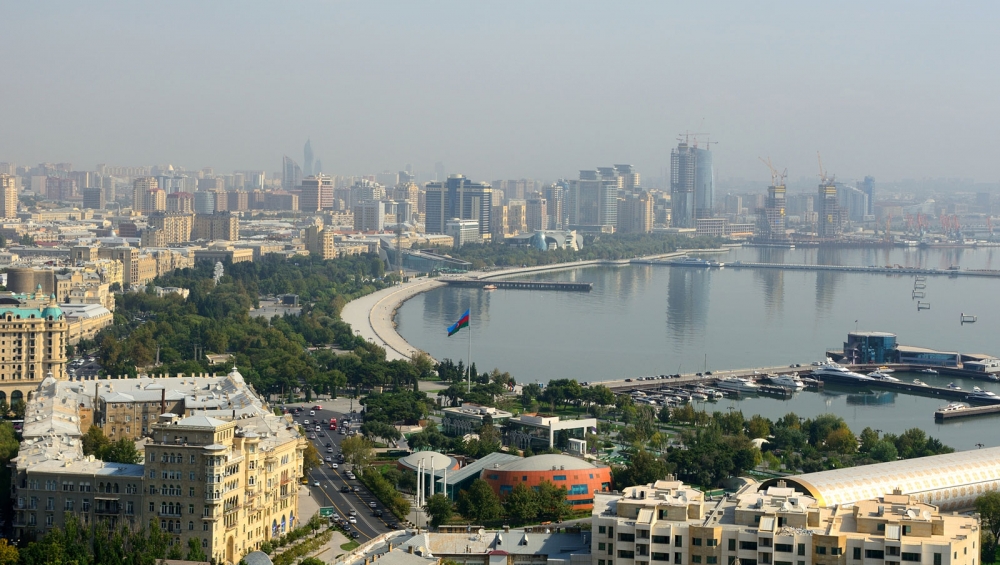Azerbaijani intellectuals and civil society members appeal to international and regional organizations

Armenia's aggressive policy poses a threat to the environment of regional and international security and must be immediately stopped...
Baku, October 12
Azerbaijani intellectuals and members of civil society have appealed to the United Nations, permanent members of the United Nations Security Council, the Non-Aligned Movement, the North Atlantic Treaty Organization (NATO), the NATO Parliamentary Assembly, the Organization for Security and Cooperation in Europe, the European Union, the Parliamentary Assembly of the Council of Europe, the OSCE Parliamentary Assembly, the OSCE Minsk Group co-chairing countries, the Commonwealth of Independent States, the Black Sea Economic Cooperation Organization, the United Nations High Commissioner for Refugees, the United Nations Educational, Scientific and Cultural Organization (UNESCO) and the Children's Fund (UNICEF). AZERTAC presents the appeal.
Against the background of the latest achievements in the areas of culture, science and technology, which are developing fast at the beginning of the 21st century, Armenia, proceeding from its medieval mentality, still does not comprehend today's realities and keeps on raising the issue of occupation of lands and territorial claims.
According to the armament index of world countries released by the Bonn International Center for Conversion in February 2020, Armenia ranks third in the world and first in Europe for the number of servicemen per thousand people in Armenia, the cost of armaments in the gross domestic product (GDP), military spending, healthcare, number of troops and the quantity of heavy weaponry. The report says that the reason for Armenia's leading position in the arms race is the Nagorno-Karabakh conflict and its militaristic policy over the past 30 years.
The UN Security Council, which serves as the key guarantor of international peace and security, adopted Resolutions 822, 853, 874 and 884 in relation to the Armenia-Azerbaijan Nagorno-Karabakh conflict in 1993. They explicitly called for a full and unconditional withdrawal of Armenian forces from the occupied territories of Azerbaijan. These resolutions condemn the aggressive steps taken by Armenia against Azerbaijan, express the importance of protecting civilians who are not parties to the conflict, and emphasize the unacceptability of the use of force to gain territory. At the same time, the resolutions point to Azerbaijan's territorial integrity, sovereignty and inviolability of its internationally recognized borders.
At 06:00 on 27 September 2020, Armenian armed forced launched a large-scale military operation against Azerbaijan in gross violation of the 1994 ceasefire agreement, opened large-caliber artillery and ballistic missile fire on civilian sites along the entire perimeter of the frontline.
From 27 September to 11 October, Armenian armed forces fired on the cities of Ganja and Mingachevir, residential settlements of Absheron, Khizi, Barda, Beylagan, Aghjabadi, Zardab, Goranboy, Goygol, Tartar and Yevlakh, killing a total of 41 civilians, including 13 women and three children, and wounding 206 more. It is noteworthy that there are 44 women and 22 children (including six babies) among the injured.
As a result of these attacks, 1,185 private homes, 148 social infrastructure facilities and 57 residential buildings were severely damaged. In addition, the occupying Armenian forces targeted the Mingachevir Hydroelectric Power Station, which is of great irrigation importance for the region, as well as the Baku-Tbilisi-Erzurum gas and Baku-Tbilisi-Ceyhan oil pipelines, which form the basis of Europe's energy security and are considered major strategic facilities in the region.
At the same time, the Armenian military-political authorities bring mercenaries from other countries to the occupied territories of Azerbaijan, violate the “Law on the State Border of the Republic of Azerbaijan” and use them in Armenian armed forces to target the Azerbaijani population.
After Armenia violated the ceasefire on 27 September 2020 to start a military operation, it launched 9N235 and M85 bombs against cities and other settlements.
The said bombs were classified as munitions banned in 2008 under the “Convention on Cluster Munitions” (CCM).
Despite a ceasefire agreement reached for humanitarian purposes with Russian mediation on 10 October, Armenian forces bombed Ganja, Azerbaijan's second largest city, with Elbrus ballistic missiles (SCUD) at 2:00 am on 11 October. As a result, nine people, including four women, were killed, 35 people, including 17 women and six children, were injured. Also, three buildings were completely destroyed, more than 10 apartment buildings and more than 100 different facilities were seriously damaged.
A number of European countries that are members of the United Nations and signatories of the 1944 “Chicago Convention on International Civil Aviation” have begun to transport weapons to Armenia by civil aircraft in gross violation of the terms of the convention.
Armenia's non-compliance with the ceasefire poses a serious threat to peace and security in the region and internationally. It fires on Azerbaijani medical vehicles, which were engaged in collecting the bodies of Armenian soldiers and were clearly identifiable with a white flag on them.
Article 18 of the 1949 “Geneva Convention for the Protection of Civilian Persons in Time of War” states that under no circumstances should the parties to a conflict throw shells or artillery at civilian gatherings. The military-political leadership of the aggressor state of Armenia continues to target civilians, houses, civilian sites and settlements, and commit crimes against civilians in violation of all international norms and principles, in gross violation of its obligations under the Geneva Conventions. Population centers, district and village centers, civil infrastructure facilities, hospitals, medical centers, school buildings and kindergartens are targeted deliberately.
In view of the above, we hereby demand that conditions be created for the implementation of UN Security Council Resolutions 822, 853, 874 and 884 adopted in 1993, immediate and unconditional withdrawal of the Armenian armed forces from the territory of Azerbaijan, and the return of one million IDPs to their homes.
Armenia's aggressive policy poses a threat to the environment of regional and international security and must be immediately stopped. Pressure must be put on Armenia to withdraw from the occupied territories of Azerbaijan as soon as possible and to prevent it from committing further war crimes.
